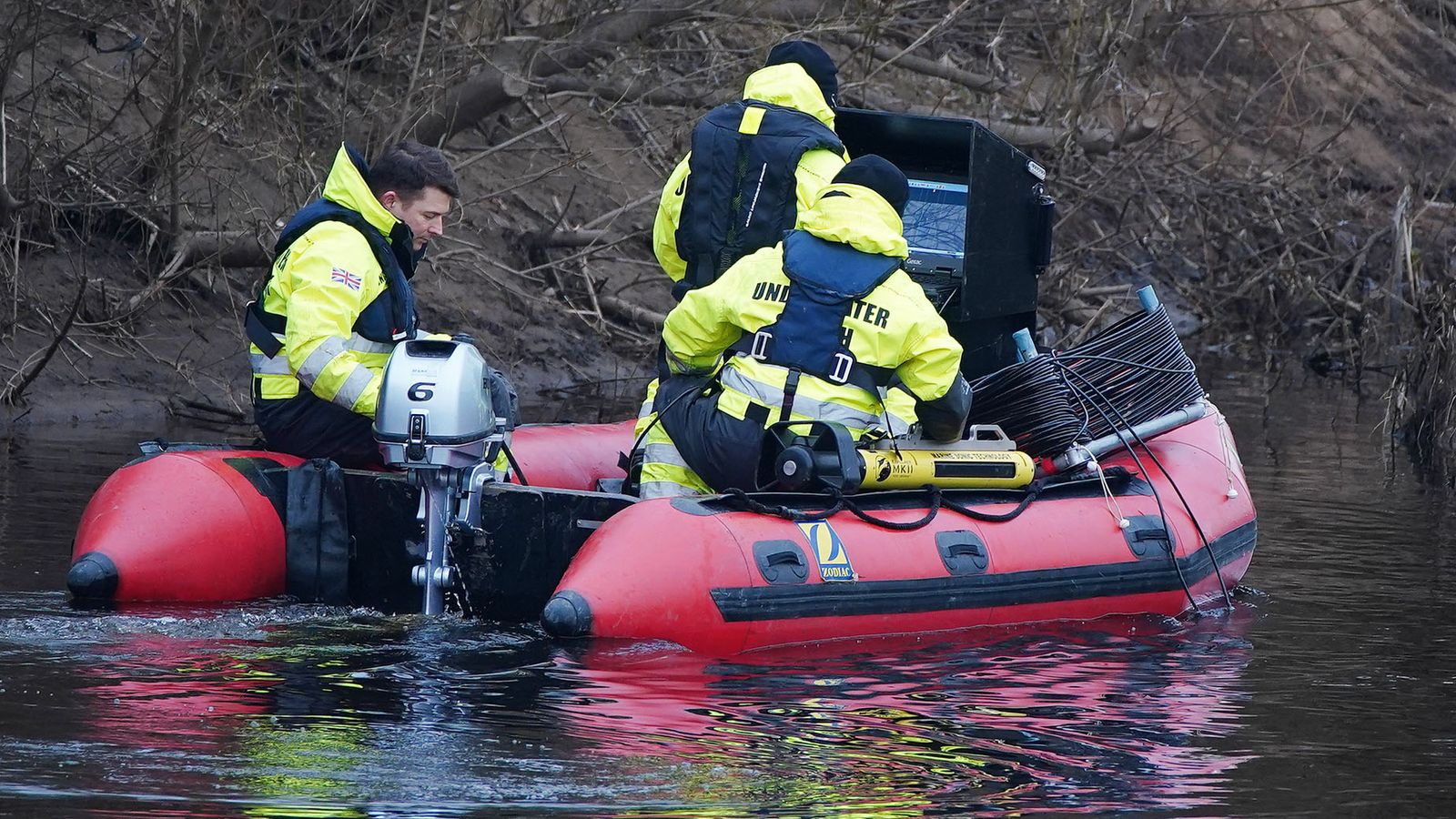Nicola Bulley’s family have criticised “appalling” speculation over her disappearance, saying people are “threatening to sell stories about her”.
In a statement issued by Lancashire Police, the family said the public focus “must be on finding her” and not “making up wild theories about her personal life”.
They also spoke about her perimenopausal symptoms, after the force revealed yesterday that the mother-of-two had suffered with some “significant issues with alcohol” in the past, brought on by her “ongoing struggles with the menopause”.
The Independent Office for Police Conduct (IOPC) said it had made contact with Lancashire Police to “determine if a referral to the IOPC may be required” after details about the mother’s private life were disclosed in a press conference.
The 45-year-old has been missing since 27 January after vanishing when she took her dog for a walk by the River Wyre in Lancashire.
The family said: “We, as a family, believe that the public focus has become distracted from finding Nikki, and more about speculation and rumours into her and Paul’s private life.
“As a family, we were aware beforehand that Lancashire Police, last night, released a statement with some personal details about our Nikki. Although we know that Nikki would not have wanted this, there are people out there speculating and threatening to sell stories about her. This is appalling and needs to stop.
“The public focus has to be on finding her and not making up wild theories about her personal life.”
Please use Chrome browser for a more accessible video player
The family added that due to the perimenopause, a period around menopause, Ms Bulley suffered with “significant side effects” like brain fog and restless sleep.
They added that she stopped taking hormone replacement therapy (HRT), which is commonly used to manage symptoms of menopause, as it was giving her “intense headaches”.
Senior officers said on Wednesday that Ms Bulley was “vulnerable” and classed by police as a “high-risk” missing person immediately after her partner Paul Ansell reported her disappearance.
News reporter
Menopause is the process where a woman’s period stops due to lower hormone levels and usually happens between the ages of 45 and 55.
It can impact a person’s mental and physical health and symptoms can include anxiety, mood swings, brain fog and hot flushes.
The NHS says menopause and perimenopause symptoms can have a big impact on a person’s life, including their relationships and work, and campaigners believe there is not enough support for women.
Celebrities like Emma Thompson and Davina McCall have called for menopause to be recognised under the Equality Act as a protected characteristic.
They are a specific set of characteristics which it is illegal to discriminate against, including age and race among others.
But in January, ministers rejected a recommendation to make it a protected characteristic and rejected calls for a trial of menopause leave for women, claiming it could cause discrimination against men with long-term medical conditions.
Last year, the Women and Equalities Committee warned in a report that the impact of menopause was causing the UK economy to “haemorrhage talent”.
A survey last year found one in 10 women who worked during menopause had left a job due to their symptoms, while others had reduced their hours, gone part-time, or not applied for a promotion.
Lancashire Police has come under criticism for revealing Ms Bulley’s struggles with alcohol during a press conference.
Martyn Underhill, a former detective who was involved in the Sarah Payne case, told Sky News that the force have “completely destroyed” Ms Bulley’s reputation adding that he was “confused” by the force’s strategy.
The dive specialist who has been helping police in the hunt for Ms Bulley also told Sky News that knowing the missing mum was “high risk” would have “changed our whole search”.
Please use Chrome browser for a more accessible video player
The Independent Office for Police Conduct (IOPC), has said they have made contact with Lancashire Police over information made public in a press conference.
A spokesperson for the IOPC said: “Following information that was made public by Lancashire Constabulary yesterday, we have made contact with the force to determine if a referral to the IOPC may be required.”
Read more:
Timeline – what were Nicola Bulley’s last movements?
‘Toxic’ public interest may be ‘dangerous’ yet ‘crucial’ in case
Lancashire Police criticised online sleuths spreading false information about Ms Bulley’s disappearance and said rumours are “distracting” officers from investigating the case.
Ms Bulley was last seen at 9.10am on 27 January taking her usual route with her springer spaniel Willow, alongside the River Wyre.
Her phone, still connected to a work call for her job as a mortgage adviser, was found just over 20 minutes later on a bench overlooking the riverbank, with her dog running loose.












